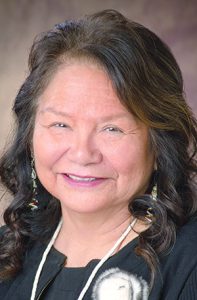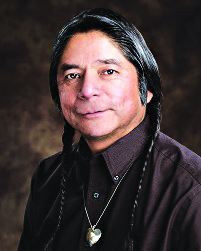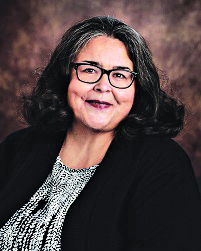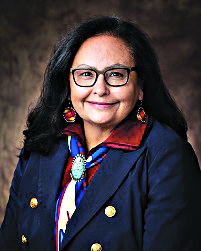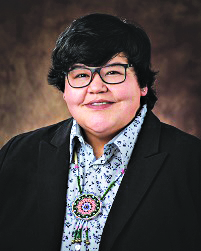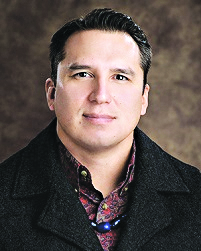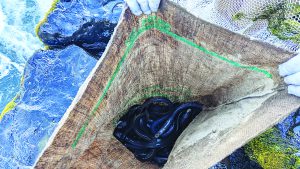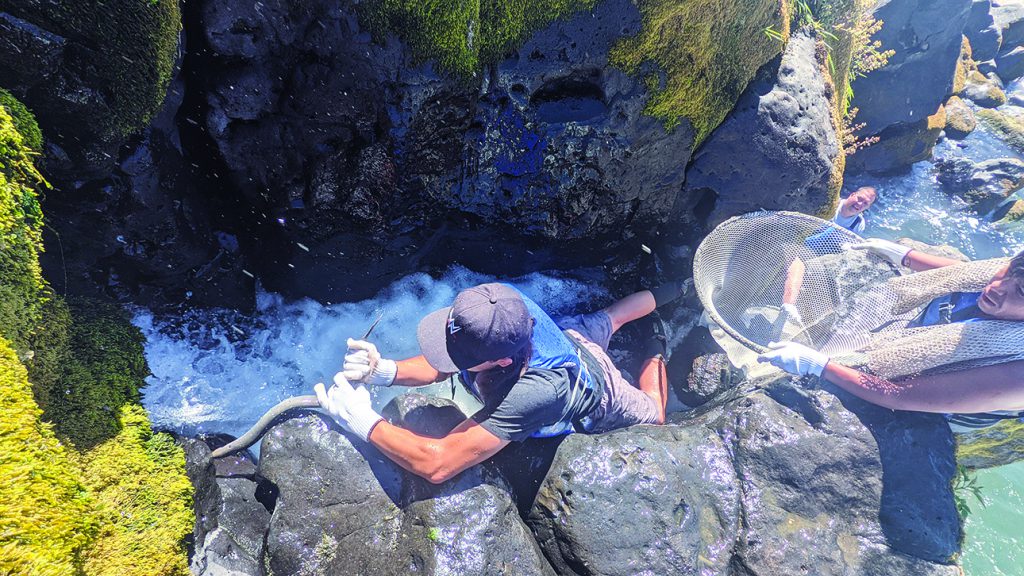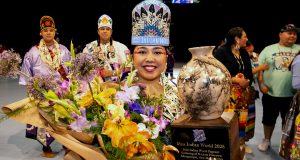By The CTUIR Board of Trustees
The Confederated Tribes of the Umatilla Indian Reservation (CTUIR) has a long history of traditional use of Willamette Falls and the surrounding region, a history spanning from time immemorial to today. Willamette Falls was and is an inter-tribal fishery utilized by tribes throughout the Pacific Northwest, including but not limited to the CTUIR, the Confederated Tribes of the Warm Springs Reservation of Oregon, the Confederated Tribes of Siletz Indians of Oregon, the Confederated Tribes and Bands of the Yakama Nation and by tribal peoples that are claimed by the Confederated Tribes of the Grand Ronde Community and others. It is a fishery of great significance to the Weyíiletpu (‘Cayuse people’), Imatalamłáma (‘Umatilla people’), and Walúulapam (‘Walla Walla people’) and is one of the “usual and accustomed” fishing places the CTUIR reserved rights to in our Treaty of 1855.
The importance of this intertribal fishery has increased over the generations as lamprey have declined throughout the Columbia River Basin. Willamette Falls feature waterfalls that are over 40 feet high where CTUIR tribal members fish alongside members of the Yakama Nation, Warm Springs, and the Nez Perce Tribe for the seasonal collection of asím / k’súyas / hé’su (‘lamprey’). Those three tribes, our sister Stevens and Palmer treaty tribes, also reserved rights to fish at usual and accustomed places in their treaties. The Siletz Tribe also collects lamprey at Willamette Falls. Since 2016, the restored Grand Ronde Tribe has fished at Willamette Falls pursuant to a fishing license it requested from the State of Oregon that allows them to harvest 15 hatchery fish, but their claimed treaties do not contain off-reservation fishing rights. Willamette Falls is one of the last areas in the entire Columbia Basin where lamprey are sufficiently abundant to be harvested by Indian people.
Over the last decade, the CTUIR has been working mostly in constructive partnership with many tribes on a number of projects and issues related to Willamette Falls, including the Willamette Falls Legacy Project, Willamette Falls Locks Commission, Willamette Falls Trust, Willamette Falls and Landing Heritage Area, the Portland Harbor Superfund Site clean-up, various state legislation and a cultural easement with Portland General Electric. We say “mostly in partnership” because in most of these projects the CTUIR and its sister tribes have good working relationships. However, the Grand Ronde Tribe has been aggressive in its opposition, making it clear that the CTUIR and any other tribal presence is no longer welcome. In recent years, and especially since it purchased the Blue Heron Mill property at Willamette Falls, the Grand Ronde Tribe has advanced a false narrative claiming exclusive use and territorial ownership over Willamette Falls and the larger Portland metropolitan area, and that other tribes only used those areas with the Grand Ronde Tribe’s permission. The Grand Ronde Tribe has further stated that it is the only tribe that should be consulted with on projects or issues related to such lands and that the other tribes do not have a role. The CTUIR disagrees with this statement and we are very pleased to know that the other tribes and entities also disagree with the Grand Ronde’s statement. Their position is not only causing confusion but delaying progress on the projects as well.
Recognizing the CTUIR’s deep history and use of the larger Willamette Falls area and the number of projects the CTUIR is involved in, the CTUIR Board of Trustees directed the Cultural Resources Protection Program (CRPP) to prepare a traditional use study of the Willamette Falls in order to document our past and present use of the area. Completed in November, 2020, the extensive Traditional Use Study of Willamette Falls and the Lower Columbia River by the Confederated Tribes of the Umatilla Indian Reservation is based on oral histories, field visits and investigations in the area, a file and literature review of existing pre- and post-contact ethnographic and historical information, including past traditional use studies, and other primary and secondary ethnographic and historical source material associated with the CTUIR’s First Foods, traditional use, and historical presence in the area. The Traditional Use Study does not seek to exclude or diminish the histories of other tribes. Rather, the Traditional Use Study helps inform the CTUIR’s partners, resource co-managers, and regional legislators about the CTUIR’s history, presence and use of the Willamette Falls, and in so doing is intended to foster productive relationships.
It is sad that the Grand Ronde Tribe viewed the CTUIR Traditional Use Study as a threat instead of additional documentation that shows Willamette Falls has been a gathering site for many tribes. Instead they retained a historian to write a harsh report attacking the CTUIR’s Study. Grand Ronde Chairwoman Cheryle Kennedy issued a letter heavily citing that historian’s report, “Rewriting History: An analysis of the ‘Traditional Use study of Willamette Falls and the Lower Columbia River by the Confederated Tribes of the Umatilla Indian Reservation.’” This letter and accompanying report viciously attacked the CTUIR’s Traditional Use Study by saying that it was “intellectually dishonest,” a claim he has used before against tribes in attempts to discredit their history
The Grand Ronde Tribe’s blanket rejection of other tribal use of Willamette Falls area rung throughout the report it hired the historian to write. It is also in the Grand Ronde Tribe’s quoted statements in the Portland Tribune last July when Chairwoman Kennedy said Grand Ronde was “undermined” by the Willamette Falls Trust by “asking other tribes to take seats” on the Willamette Falls Trust Board. Despite recently stating publicly that other tribes are welcome to fish at Willamette Falls with their permission, and contradicting its public statements last year that they “were the tribe that welcomed different tribes from near and far…” the Grand Ronde Tribe has continued to attack the CTUIR.
Willamette Falls, like most major falls throughout the Columbia River Basin, including Celilo Falls and Kettle Falls at present-day Spokane, were meeting places where Indian people gathered for millennia to procure resources, trade goods, and reconnect with kin and friends. Of course, even among family and friends, when disagreements arose they were addressed and dealt with so that they did not fester and become larger problems. Unfortunately, the restored Grand Ronde Tribe seems to have forgotten how Indians resolve differences. Instead they seem to prefer the court of public opinion to try to obtain fishing rights at Willamette Falls while trying to exclude other tribes with fishing rights there. It is truly unfortunate that the Grand Ronde leadership has chosen this public path. The CTUIR has no choice but to rebut the Grand Ronde Tribe’s misguided efforts to attempt to undermine the very well-founded and heavily researched CTUIR Traditional Use Study report.
The CTUIR supported the restoration of the Grand Ronde Tribe in the 1980s, but their quest for territorial expansion through exclusionary practices has made working together difficult. Nonetheless, we will continue to look for opportunities where we can find shared interests and common goals and work together with the Grand Ronde and all tribes in a collaborative manner. And we will continue to protect our tribal member’s rights and interests at Willamette Falls and throughout all areas that were traditionally used by ancestors of the CTUIR and that continue to be used by our modern-day members.
This is the only way forward.


